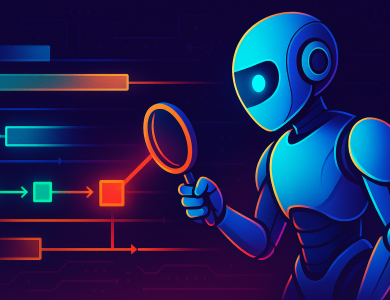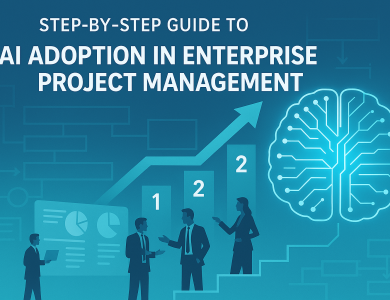
Embracing AI in digital projects can feel like navigating a complex maze, but overcoming challenges in AI adoption is entirely achievable with the right strategies.
As someone deeply involved in digital transformation, I’ve seen firsthand how organizations can successfully integrate AI to drive innovation and efficiency.
Understanding the Common Challenges in AI Adoption
When embarking on AI integration, several hurdles can arise. Let’s delve into the most prevalent challenges organizations face:
1. Resistance to Change
Change often meets resistance, especially when it involves new technologies like AI. Employees may fear job displacement or feel overwhelmed by the learning curve. Addressing these concerns through transparent communication and involving team members in the AI implementation process can mitigate resistance.
2. Lack of Expertise
AI adoption requires specialized knowledge that many organizations might lack in-house. This expertise gap can slow down project progress. Partnering with AI experts or investing in training programs can help bridge this gap.
3. Data Quality and Availability
AI systems thrive on high-quality data. Poor data quality or insufficient data can lead to inaccurate insights and hamper the effectiveness of AI initiatives. Implementing robust data governance practices is essential to ensure data integrity.
4. Integration with Existing Systems
Seamlessly integrating AI solutions with legacy systems can be technically challenging. It’s crucial to choose AI tools that are compatible with your current infrastructure to avoid disruptions.
5. Cost and ROI Uncertainty
The financial investment required for AI projects can be daunting, especially with uncertain returns. Conducting thorough cost-benefit analyses and starting with pilot projects can help demonstrate the potential ROI before scaling up.
Strategies to Overcome AI Adoption Challenges
Overcoming these challenges requires a strategic approach. Here are actionable strategies to facilitate successful AI adoption:
1. Fostering a Culture of Innovation
Cultivating an environment that encourages experimentation and embraces change can significantly reduce resistance. Celebrating small wins and showcasing successful AI projects can motivate the team and build momentum.
2. Investing in Training and Education
Providing ongoing training ensures that your team stays updated with the latest AI developments. This not only enhances their skills but also empowers them to contribute effectively to AI projects.
3. Ensuring Data Quality and Governance
Implementing stringent data management practices guarantees that your AI systems are fed with reliable data. This involves regular data audits, cleansing processes, and establishing clear data ownership.
4. Selecting the Right AI Tools and Platforms
Choosing AI solutions that align with your business needs and integrate smoothly with existing systems is crucial.
Platforms like ProjectNext.ai offer versatile tools designed to streamline AI integration in various digital projects.
5. Demonstrating ROI through Pilot Projects
Starting with small-scale pilot projects allows you to test AI applications and measure their impact without committing significant resources upfront. Successful pilots can provide the proof needed to justify larger investments.
Real-Life Examples of Successful AI Adoption
To illustrate these strategies, let’s look at how a mid-sized e-commerce company successfully integrated AI into their operations:
Case Study: Enhancing Customer Experience
The company faced challenges with customer service efficiency and personalized marketing. By partnering with ProjectNext.ai, they implemented an AI-driven chatbot and personalized recommendation engine. This not only reduced response times by 40% but also increased sales conversions by 25%. The success of these pilot projects led to broader AI integration across their platforms.
How ProjectNext.ai Can Facilitate Your AI Journey
Integrating AI into your digital projects doesn’t have to be daunting. ProjectNext.ai offers comprehensive solutions tailored to your specific needs, ensuring seamless AI adoption and maximizing ROI. From expert consultation to robust AI tools, they provide the support you need to navigate the complexities of AI integration.
Frequently Asked Questions
1. What are the first steps to take when adopting AI in a digital project?
Begin by identifying the areas where AI can add value, assess your current data infrastructure, and secure buy-in from stakeholders. Partnering with experts can also help streamline the initial phases.
2. How can I measure the success of AI implementation?
Establish clear KPIs aligned with your business goals, such as increased efficiency, cost savings, or enhanced customer satisfaction. Regularly monitor these metrics to evaluate performance.
3. What are the common pitfalls to avoid in AI adoption?
Avoid rushing the implementation without proper planning, neglecting data quality, and underestimating the importance of change management. Ensuring comprehensive strategies can help prevent these issues.
4. Can small businesses effectively adopt AI?
Absolutely. Start with scalable AI solutions that address specific business needs. Companies like ProjectNext.ai offer affordable and scalable tools suitable for businesses of all sizes.
Conclusion
Overcoming challenges in AI adoption for digital projects is a multifaceted endeavor, but with strategic planning, investment in the right resources, and a supportive culture, it’s entirely within reach.
Embracing AI can transform your digital initiatives, driving efficiency and innovation. If you’re ready to embark on this journey, platforms like ProjectNext.ai can be invaluable partners in your success.



